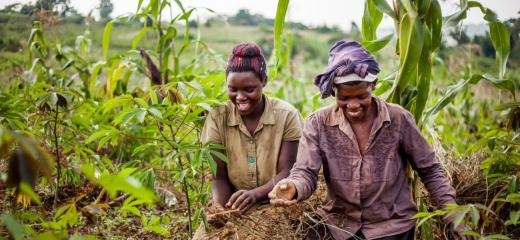BRIEFLY ABOUT LAND.
The main target for us was to acquire a small piece of land outside the city; however, it became a huge dream for us as we were unaware of how it would become a possibility. Luckily a late friend (Gerald) of us contributed largely to make this a reality for us. We have a piece of land, a portion of it is attributed to farming and the other part for burial in case we lose children, women from our programs and we are unable to trace their families.
We purchased this land through agreements and after this process we are to push to the next level of acquiring its land title and all the transfer letters from the responsible authorities. This is basically a process in terms of administration and for proper safety in order to avoid land theft. It requires quite a sum of money and it is why we work on it in a stages.
OUR HOPE.
Our hope is to enlarge (purchase more) the land so that we can have different programs carried out and have the shelter moved up onto the land so that we can have many costs reduced monthly and attain the possible goals we want to achieve for the children and the community at large. Currently we continue to grow maize which supports mainly the women during programs and those with HIV/AIDS as a big number of them continue to need food supplies every month.
We have been lucky enough to see what happens when we do and give a little bit of ourselves to work with the women and the giant Significance there is empowering families.
IMPACT
We start up income generating projects for a child`s family in order to improve their well-being and keep the children happily settled at home. We have done this through setting up small scale farming projects for the families, poultry, and setting up small enterprises for the families. We do this in order for the resettled children to be able to acquire all the needed materials while at home and ensure there is sustainability among others.
All the food production at the far project goes into supporting the women and the children programs that we run there. The maize plays a vital element in the feeding of the children and their mothers. We are working highly so that in future we can have more land where we can build and put an Infrastructure and reduce on the rate costs that we have to incur in the year.

